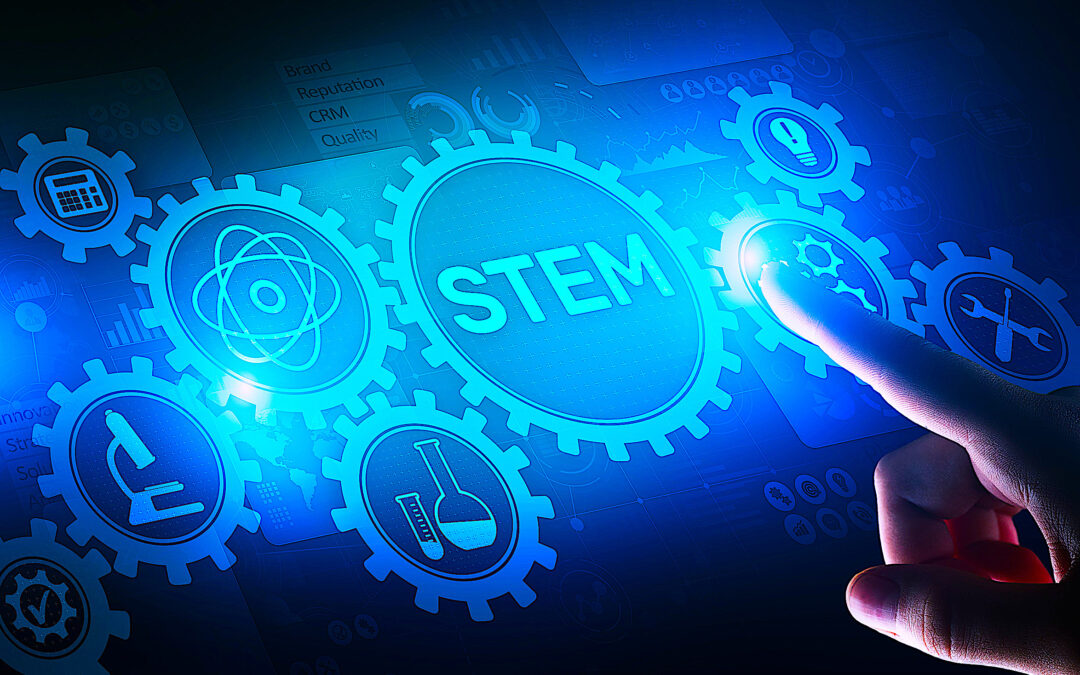In my August 30, 2021, article, “High School Robotics Competitions: A Source of Next-Gen Technicians” (see link below), I described how certain hands-on applied-technology programs in schools are building excitement, skills, and knowledge for careers in industry. The FIRST robotics programs that I referenced are tangible, highly visible results of a growing emphasis on Science, Technology, Engineering, and Math (STEM) skills development in our schools. As RAM professionals, we are well suited to help with those efforts. And we should.
Click Here To Read The Referenced August 30, 2021 Article
STEM courses of study, starting with young children and continuing through post-secondary levels, need RAM pros to help open doors to increasing opportunities for all students, including some who could otherwise fall through the cracks. Local and regional STEM-career awareness and education for many college-bound students and those who would benefit from a community-college technical program have been largely ignored. This has hurt our industries, infrastructure, and economy. Alas, career educators and administrators often have a difficult time grasping the real-world-career implications of STEM. We can do better.
Specifically, we could help align the STEM content with business and industry careers and emphasize applied learning for employment in our communities. The result: skilled-workforce entrants for high-paying jobs and rewarding careers.
Many students who won’t pursue college degrees will leave high school with diplomas, but few marketable skills. Many of the non-college-prep classes that prepared their parents and grandparents for entry into life-long careers in various trades have been removed from curriculum offerings, including “shop” classes of the 1960s and 1970s. Table saws, arc welders, cutting torches, and other industrial equipment once found in schools have gone the way of certain playground equipment, all in the interest of safety and insurance-cost reduction. Those moves seem to suggest that competent supervision, safety-hazard consciousness, and professional standards of leadership have also moved along.
(BTW: The U.S. Department of Education deleted “Technology Education/Industrial Arts” from its official Classification of Instructional Programs [CIP] in 2010. What’s the big deal, you ask? Consider this: The CIP is foundational to the Integrated Postsecondary Education Data System [IPEDS], which is the primary source for data on colleges, universities, and technical and vocational post-secondary institutions in the U.S.)
Aligning STEM studies with local career awareness and career-specific education will make the learning process more meaningful. Students in those settings would master practical STEM applications and be quick studies on the job. This applied-STEM approach would also fuel the curiosity that enables a student’s real-world troubleshooting and problem-solving abilities and be a tremendous benefit to potential employers.
Is it possible to align our STEM programs with technician-career opportunities that cut across different business and industry and sectors? Is it possible to excite students about jobs with base wages ranging from $40K to more than $80K, and where employment growth is projected to be above average? Is it possible to educate students for entry-level jobs that often require high-school career preparation along with one to two years of post-secondary technical education?
I believe there’s a clear and present mandate to answer “yes” to all the above. So, let’s get on with it. Let’s work with our local schools and technical/community colleges to demonstrate how practical STEM skills and knowledge play out in real-world operations. Growing a sustainable skilled workforce is a noble use of our own skills and time.TRR
ABOUT THE AUTHOR
Bob Williamson is a long-time contributor to the people-side of the world-class-maintenance and manufacturing body of knowledge across dozens of industry types. His background in maintenance, machine and tool design, and teaching has positioned his work with over 500 companies and plants, facilities, and equipment-oriented organizations. Contact him directly at 512-800-6031 or [email protected].
Tags: reliability, availability, maintenance, RAM, skills shortages, workforce development, STEM education, first inspires.org



